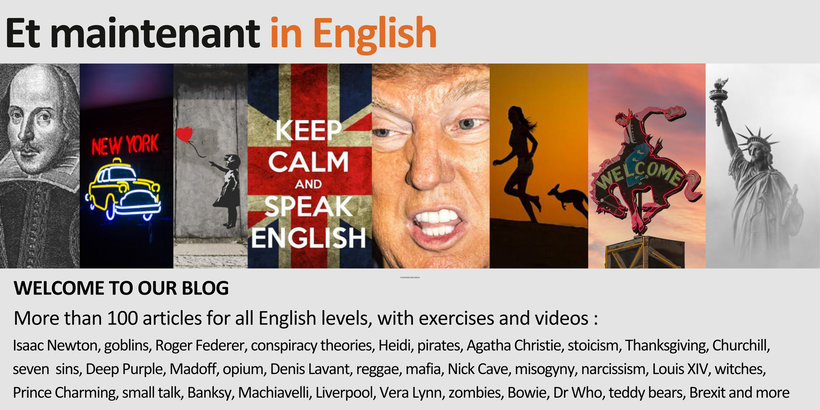Level B1 and above
The email has the immediacy of a phone conversation, and a similar sense of informality. It is like a written conversation; neutral, polite and straight-to-the-point. That’s how we like to get things done, isn’t it?
- With expressions related to email writing.
Emails are one of our most important communication tools. The email has the immediacy of a phone conversation, and a similar sense of informality. It is like a written conversation; neutral, polite and straight-to-the-point. That’s how we like to get things done, isn’t it? For example:
I am happy to confirm our meeting on December 15 at 3pm.
Please send me a copy of the auditor’s report of May 2018.
Could/Can we please meet on Tuesday (tomorrow) at 3pm? I’m afraid I won’t be free at 2pm.
We have received your payment. Many thanks.
Please find below a proposal for your English lessons at The Language House…
Neutral, polite and straight-to-the point…This sounds a lot like The KISS principle.
1. Keep It Short and Simple (KISS).
The KISS principle is a fine rule to live and write by.
This is the best advice for writing professional emails in English (or for writing anything). Forget those long verbose French phrases. Be brief. You don’t have to be boring. You can be creative and add some personality, and still be succinct. Plain English or simple clear English is faster to write, faster to read and easier to understand.
Which do you prefer; A or B?
A. I trust this clarifies the matter for you and we look forward to hearing from you in due course in respect of your decision whether or not you intend to take out a loan.
B. Please contact me if you would like to take out a loan. My direct line is…
English has become the language of business. Here is one reason why:
A. Je me tiens à votre entière disposition pour tous renseignements complémentaires et vous prie, Madame, Monsieur, d’agréer l’expression de mes respectueuses salutations.
B. Please call me if you have any questions. Kind regards
2. The verb is Queen
Life and work is all about action. In almost all emails the most important information relates to the verb (action): update, cancel, postpone, resend, order, propose, calculate, check, recommend, deliver, invite, send, find…
People want to know “what do you want me to do?” If possible, state this quickly in the first sentence of your emails. Don’t hide the important things to do in the middle or at the end.
The world of work is about action (doing things and getting things done) and action is all about verbs. The verb is Queen. But you don’t need to sound like a dictator. Remember what your mother taught you. You should always say…
3. Please and thank you
You can soften (adoucir) the content with politesse, so you sound more like a benign leader or a caring colleague rather than a dictator. If the email is for a colleague or client who you deal with regularly it is important to get straight to the point; but with politesse:
Please send me a copy…
Please contact John in marketing…
Could/can/would you please organise a meeting with…
Thank you for your email. I will do that immediately…
Please confirm the bank details for client 54A234.
If it is first contact, or needs to be slightly more formal, change the wording to:
Could/Can/Would you please send me…
Could/Can/Would you please cancel our order…
Could/Can/Would you please contact our marketing department…
The use of please softens any awkward language that may sound a bit direct, clumsy or rude. How many times have you received (or sent) a cold or rude email? A please or two in the right places change the tone completely.
I often reply to emails with: Thank you for your email or Thank you for contacting The Language House. This polite phrase thanks the receiver for selecting my company (instead of a competitor) and for taking the time and energy to write.
Be empathetic: I know you are really busy, but I need you to look at the figures attached. Can you please give me your response before 5 pm? Much appreciated.
If the issue is sensitive. It is a good idea to follow up your email with a telephone call.
I think company B is unhappy with our delivery times. Do you think it would be a good idea to invite them to lunch? Can we have a chat about this? I will call you later this afternoon around 3pm. Please confirm.
Advice: Please use please and thank you. Start and end with polite phrases. For example start with: Thank you for your email and finish with Please call me if you have any questions. My direct line is 022 321 52 63. I look forward to hearing from you (Read more here) Not every sentences has to include please. But most sentences should.
4. Subject-Verb-Object
Generally, humans of the English language variety understand information easily if it is given in the following order: Subject-Verb-Object. This is the most digestible order of words in an English sentence. If you have a complex sentence that’s giving you (and therefore your future reader) difficulty, the simplest way to fix it is to rewrite it in a subject-verb-object format. This reduces confusion. If necessary, turn a long or confusing sentence into two shorter sentences. Make a general rule: one idea per sentence. If you have many ideas to share use bullet points.
Which do you prefer?
A. In the case of a board member announcing their retirement, the retiring member must offer the company the first option to purchase their shares no longer than 30 days after their official retirement date.
B. The company has first option to buy a retiring member’s shares.The shares must be offered to company less than 30 days after the member’s date of retirement.
A. At this point in time, despite our investigations we are unable to ascertain the reason as to why the door was left open.
B. We still don’t know why the door was left open.
When making a request use a simple question.
A. I don’t know what your schedule looks like, but if you’re available, I would really appreciate the chance to have lunch with you sometime next week. I hope you are free.
B. Are you free for lunch next week? Do you prefer Tuesday or Wednesday? Please confirm.
A request presented in a short, simple sentence won’t to be overlooked.
Advice: A general rule: One idea per sentence. If you have many ideas to share use bullet points.
5. Greetings and signing-off
Dear and Hello are fine for most emails. Dear is a little more formal.
Important: In English, ALWAYS use the name of your recipient (if you know it), even if you haven’t had any contact with him or her.
Dear and Hello are fine for most emails. Dear is a little more formal.
In English we only say Dear Sir/Madame if we don’t know the name of the person who will receive the email, for example a government office. Be careful, these impersonal emails often end up in the spam box.
The correct title for a woman named Sue Johnson is Ms (pronounced MIZZ) eg. Dear Ms Johnson. (Read more here: Ms, Mrs and Miss)
Never write: Dear Mr Garry. It is either Dear Mr Littman or Dear Garry
Don’t start your email with How are you? – an open-ended question, that normally demands an answer. You can, instead use the expressions, I hope you are well, I hope you are keeping well, I hope you had a great weekend, I hope the week started/ended well. No replies are necessary.
Don’t (please) finish an email with the robotic and over-used phrase: Have a nice day – (Read more here)
Sign off with Yours sincerely for a formal email and Kind regards/Best regards or Thank you for less formal/neutral emails.
So, there are five tips to think about. More tips to come next week. Comments welcome.


